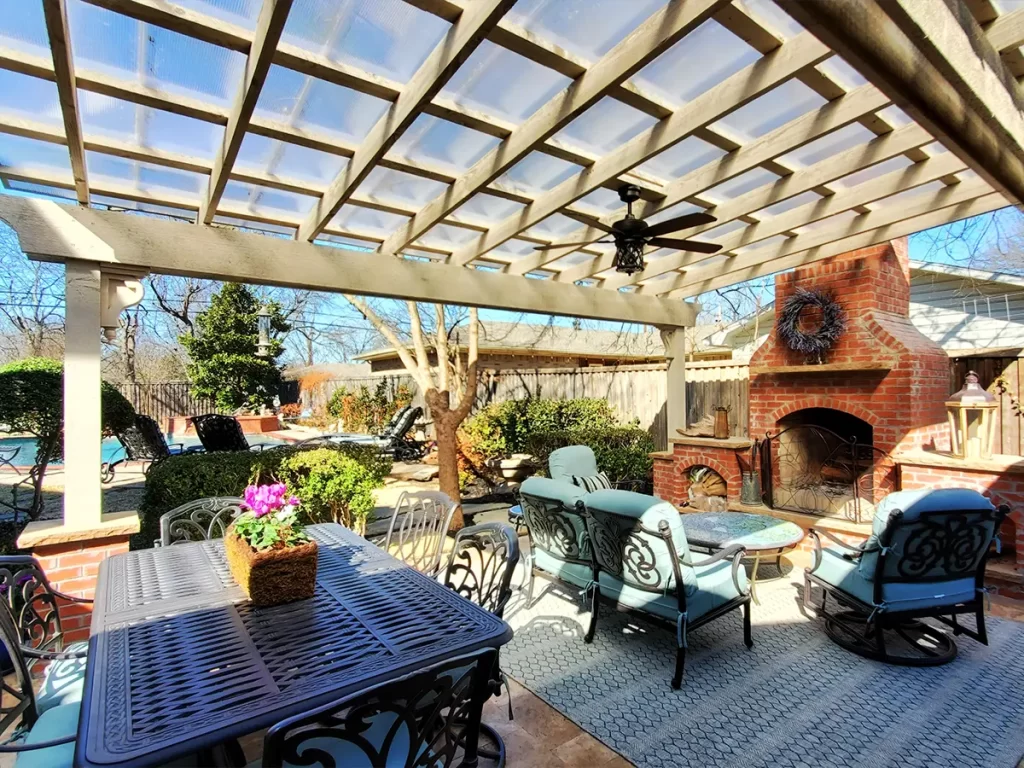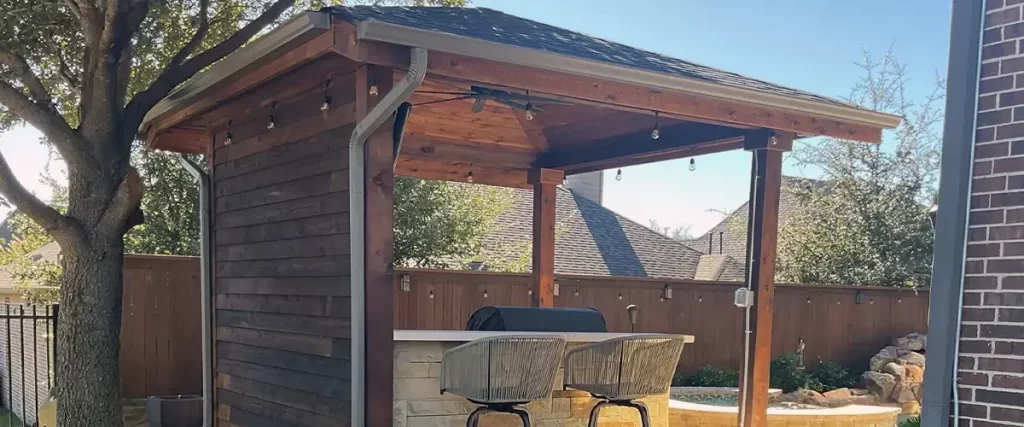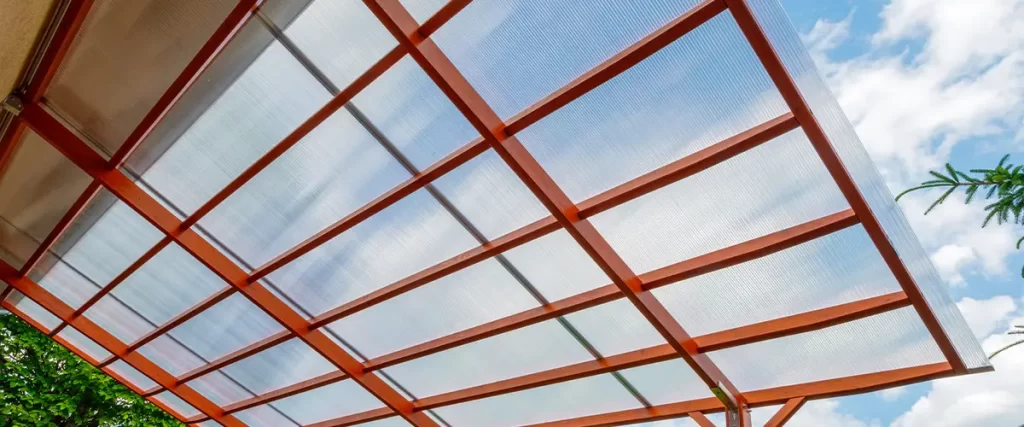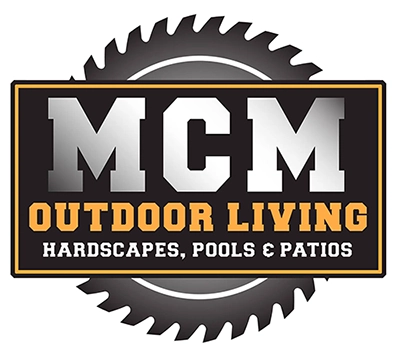Texas weather isn’t exactly known for being gentle. If you’re a homeowner in the Lone Star State, you already know that your outdoor spaces need to be built tough. From sweltering summers and sudden thunderstorms to the occasional hailstorm and heavy winds, Texas climate conditions can really do a number on your backyard structures, especially your pergola.
That’s why choosing the right material for your pergola isn’t just about style — it’s about survival.
In this post, we’re diving deep into the three best pergola materials that can actually stand up to Texas’s wild weather shifts. Whether you’re planning a cozy retreat for your morning coffee or a shady spot to host weekend barbecues, this guide is packed with insights to help you build something beautiful that actually lasts. Let’s jump in.

Why Texas Weather Demands the Right Pergola Material
Before we get into the nitty-gritty, let’s talk about why this decision matters more here in Texas than in, say, California or New York.
- Sun and heat: We’re talking triple-digit temperatures for weeks at a time during the summer. That kind of heat can warp, crack, or fade materials that aren’t up to the task.
- Storms and wind: Spring brings intense thunderstorms and gusty winds, especially in North and Central Texas. You need a pergola that won’t fall apart when the clouds roll in.
- Humidity: If you’re near the Gulf Coast or in Central Texas, humidity is a real concern. Moisture can lead to rot, mold, and corrosion over time if you’re not using the right materials.
Okay, now that we’ve set the stage, let’s get into the three materials that actually work for pergolas in Texas.
The 3 Best Materials for Pergolas in Texas Weather
1. Aluminum
Why it works: Lightweight, rust-resistant, and virtually maintenance-free, aluminum is a go-to choice for Texas homeowners. It handles high heat like a champ and won’t warp, crack, or rot.
Pros:
- Doesn’t rust — perfect for humid or coastal Texas regions
- Reflects heat rather than absorbing it
- Powder-coated finishes resist fading and chipping
- Low maintenance (just hose it down every so often)
Cons:
- Can feel less “natural” than wood if you’re going for a rustic look
- More limited color and texture options compared to other materials
If you want a pergola that you can install and then forget about (in a good way), aluminum should be high on your list.
2. Cedar Wood
Why it works: Cedar naturally resists insects and rot, making it an excellent choice for Texas. It also brings that warm, classic wood look that a lot of homeowners love.
Pros:
- Naturally resists decay and pests (unlike pressure-treated pine)
- Holds up well in dry heat and handles moisture better than most woods
- Ages beautifully — turns a silvery gray over time if left untreated
- Easy to customize and paint or stain
Cons:
- Requires some maintenance (sealing every 1–2 years for best longevity)
- Can be pricier than other types of wood
If you’re okay with doing a little upkeep, cedar offers both beauty and durability. It’s especially great if you’re going for that classic Texas Hill Country vibe.
3. Vinyl (PVC)
Why it works: Vinyl pergolas are becoming increasingly popular thanks to their durability and low maintenance needs. They don’t crack, rot, or attract bugs — and they handle sun exposure really well.
Pros:
- UV-resistant and fade-resistant
- Won’t crack, split, or peel
- Doesn’t attract termites or mold
- Very low maintenance — just clean it occasionally
Cons:
- Limited style options — may not suit all tastes
- Doesn’t have the natural warmth of wood
If ease of care and long-term performance are your top priorities, vinyl is a smart, modern choice.

How to Choose the Right Material for Your Texas Home
So which material should you go with? That depends on what’s most important to you.
- Want something sleek and ultra-durable? Go with aluminum.
- Looking for that traditional wood look with natural resistance to pests? Cedar’s your best bet.
- Prefer set-it-and-forget-it convenience with no regular maintenance? Vinyl is the way to go.
Think about your local climate, how much time you want to spend maintaining your pergola, and of course, the overall look you’re going for in your backyard.
Top Pergola Material Manufacturers
Trusted names in quality materials help ensure your pergola is built to last. Here are some of the best manufacturers out there:
- StruXure – Innovative aluminum pergolas with smart tech and sleek designs.
- Trex® – Known for eco-friendly composite materials that blend beauty and durability.
- Fortress Building Products – Based right here in Texas; they produce steel and aluminum options built for extreme conditions.
- Armadillo Deck – Offers weather-resistant composite materials with beautiful wood-grain finishes.
- AZEK/TimberTech – Makes high-performance PVC and composite products designed to resist the toughest weather.
Our Team Has Been Building Long-Lasting Pergolas for Years
We’ve been designing and building pergolas that stand up to Texas heat, wind, and rain for years. This isn’t a side gig — it’s what we do, and we’ve got the happy clients to prove it. Our team understands the local conditions, the codes, and the materials that work best in each region across the state.
If you’re ready to get your project handled by professionals who know exactly what they’re doing, give us a call at (469) 583-6213. Working with the best saves you time, stress, and money in the long run.

FAQ: Pergolas in Texas
► Do I need a permit to build a pergola in Texas?
That depends on your city or county. Many areas require a permit if your pergola is attached to your home or exceeds a certain size. Always check with your local building department.
► Can a pergola provide enough shade during a Texas summer?
Yes, especially if you choose a design with a covered roof or adjustable louvers. You can also add fabric canopies or climbing plants for extra coverage.
► What’s the most durable pergola material for high winds?
Aluminum and steel are typically the most wind-resistant. Proper anchoring is also crucial, no matter what material you use.
► How often will I need to maintain my pergola?
That depends on the material. Cedar needs sealing every 1–2 years, while aluminum and vinyl are almost maintenance-free.
► Will my pergola increase my home’s value?
Absolutely. A well-designed outdoor space with a high-quality pergola can boost curb appeal and property value.
► Can I install a pergola on a concrete patio?
Yes, you can anchor your pergola directly to concrete, but it’s important to use the right hardware and anchoring system.
► Are pergolas customizable?
Totally. You can choose the size, color, design, and even add features like lighting, fans, or retractable shades.
► What’s the average cost of a pergola in Texas?
It varies based on size, material, and customization, but most projects range from $3,000 to $10,000. We’ll provide a detailed quote during your consultation.
Final Thoughts: Build Smart, Build for Texas
When it comes to pergolas, don’t just think about how it looks — think about how it lives in Texas weather. The right material can mean the difference between a backyard feature that lasts 20+ years and one that needs replacing after five. Aluminum, cedar, and vinyl are your best bets, each with its own strengths depending on your priorities.
Ready to get your pergola project started with a local team that knows Texas like the back of their hand? Contact us today at (469) 583-6213 and let’s build something great together.
